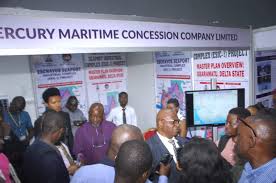Retired Rear Admiral Andrew Okoja is sounding the alarm, warning that Nigeria is on the verge of losing a staggering $27.29 billion in foreign investment for the highly anticipated Escravos Seaport Industrial Complex (ESIC) project in Delta.
As the Chairman of the Mercury Maritime Concession Company (MMCC), Mr. Okoja expressed his concerns about the prolonged delays by both the federal and Delta state governments in granting final approval for the project to commence. He stressed that this delay could have dire consequences for job creation and the nation’s economy.
Investors are eagerly waiting to pour in funds for the ESIC project, which holds the promise of transforming Delta and seven other states, including Abuja, into thriving hubs of international trade, commerce, and industry.

This ambitious project aims to elevate the economy of Delta State and other beneficiary states from rural to metropolitan development of international standards, much like the success story of the Lekki Deep Seaport/Free Trade Zone (FTZ).
Designed as a non-solicited public-private partnership (PPP) regulated by the Infrastructure Concession Regulatory Commission (ICRC), the ESIC project involves a renewable 50-year concession lease for the construction, ownership, operation, and transfer (BOOT) of the deep seaport and Free Trade Zone.
EDIB International of Hong Kong has already expressed a keen interest in investing a whopping $27.29 billion to bring the ESIC project to fruition.
It is crucial to note that this project goes hand in hand with the ongoing Lagos-Calabar coastal road project initiated by President Bola Tinubu’s government, providing a seamless synergy for the nation’s development.
The stakes are high, and Nigeria must act swiftly to secure this monumental foreign investment and unlock the immense potential of the Escravos Seaport Industrial Complex.
Failure to do so could hinder progress, stifle job opportunities, and impede the transformation of the nation’s economy.




